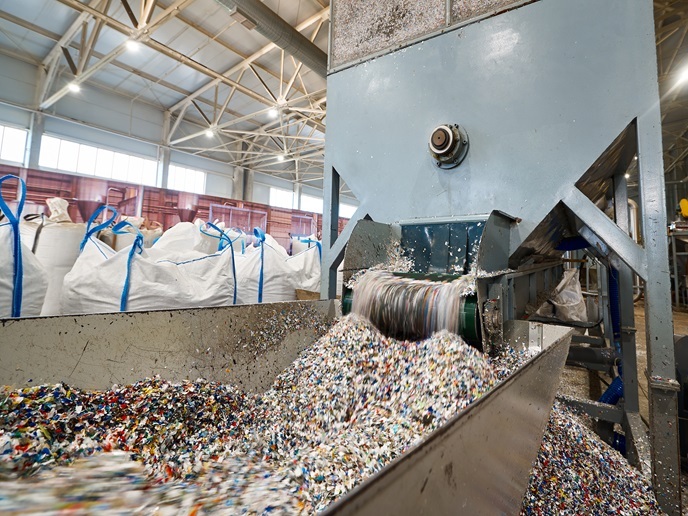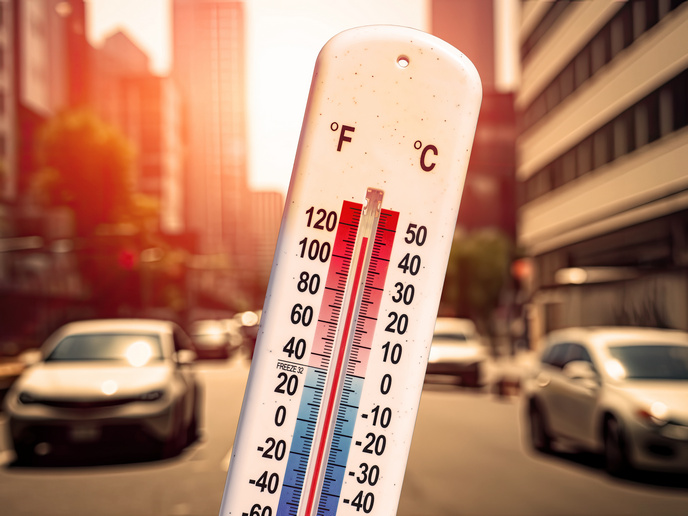Tackling plastic waste with next-gen materials
The modern world relies on plastics, but the growing focus on household sorting and recycling efforts highlights the need to investigate more effective reprocessing and recycling methods once plastics reach the end of their useful life, as well as strategies to integrate recycling as early as possible in the innovation stage. Hosted by the French Alternative Energies and Atomic Energy Commission (CEA), in collaboration with research and technology organisations and industry partners, the SURPASS project is integrating safety and sustainability into material development from the very earliest stages. “Many plastics on the market are neither completely safe nor sustainable,” explains project coordinator Simon Clavaguera, head of laboratory at CEA in Grenoble. “They were designed without considering their full life cycle, including environmental impact, recyclability or potential hazards. Our goal is to ensure new materials prioritise these aspects from the outset.”
Eliminating plastic waste
Plastic waste remains a significant environmental issue, with much of it ending up in landfills. To address this, SURPASS targets three industrial sectors that together account for 70 % of European plastic demand. In construction, SURPASS has created recyclable bio-sourced polyurethane resins for window frames, while improving performance by reducing thermal conductance by 70 % compared to PVC, the present industry standard. Free of hazardous substances, these resins are also being optimised for recyclability with minimal material loss. For transport, the team has developed fire-resistant, recyclable composites material to replace metal in train bodies. Meeting strict fire safety standards, these lightweight materials enhance durability, reduce train weight and improve energy efficiency. In food packaging, the project has met key targets with its recyclable multi-nanolayered films, improving reprocessing and oxygen barrier properties. Trials show promising results, though transparency remains a challenge. “We achieved a significant barrier to oxygen, crucial for preserving food,” Clavaguera notes. “The team is now addressing the material’s visual quality while assessing consumer acceptance.”
Industry collaboration
A key goal has been advancing materials from technology readiness level (TRL) 3 to TRL 5 within 3.5 years, ensuring real-world application readiness. Several project partners have already patented key innovations, with licensing discussions under way to facilitate commercialisation. Collaboration with industry partners has been vital to the project’s success to date. Indresmat, a Spanish SME, is developing innovative formulations, while WIPAK, a flexible packaging company, ensures the materials meet market needs. BASF supports the consortium in developing sustainable innovative materials and assessing safety from an industrial perspective. In the transport sector, the project has worked with research institutions such as Fraunhofer ICT and Cidetec, acting as a launching pad for industry actors such as the Spanish train manufacturer Talgo.
Standardisation and digital tools
With one year left, SURPASS is now turning its attention towards digital infrastructure. “We are developing a website to compile our findings, along with tools and methods to help SMEs both adopt our results, and participate in the development of safe and sustainable plastics, thereby strengthening European competitiveness,” Clavaguera concludes. Standardisation is another key element, with the team implementing changes to existing standards and launching new ones, particularly for plastic decontamination after use. This alignment is essential for maximising the project’s impact and practical application. SURPASS ends in November 2025, and its impact on the plastics industry could be profound, setting new precedents for sustainability, safety and recyclability across multiple sectors.
Keywords
SURPASS, safe, sustainable, recyclable, design, recyclable materials, plastics, materials







